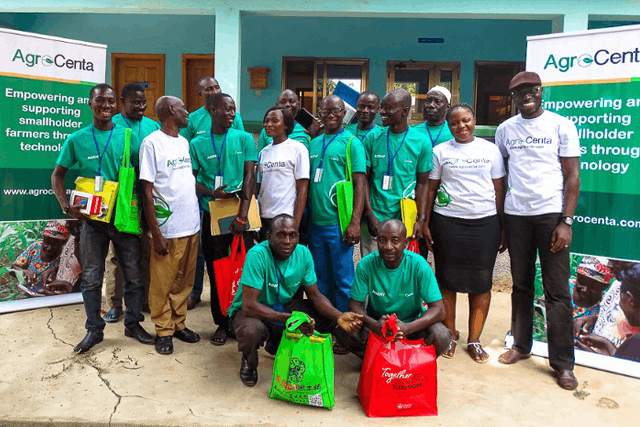We caught up with founders from each of the 12 selected startups, starting with Francis A. Obirikorang, CEO and Co-Founder of AgroCenta:
Could you introduce yourself?
My name is Francis Obirikorang, CEO & Co-founder of AgroCenta which is a technology platform creating value for smallholder farmers through fair trade. I am a graduate of Kwame Nkrumah University of Science and Technology (KNUST) and studied Materials Engineering as a major. With my love for technology and innovation, I worked for local and international software companies and with over 8-year experience in product development, innovation and marketing.
What does “financial inclusion” mean to you?
Financial inclusion, from my personal perspective, is the creation of value added services for the disadvantaged in the society. From the concept of Barefoot Banking to digital innovations, financial inclusion bridges the inequality financial gap that exists between the rural and the urban settings.
Could you describe the mission of AgroCenta?
We create an access route to market for smallholder farmers, eliminating exploitative buying from the value chain, allowing smallholder farmers to sell directly to consumers at fair market price to lift the farmer from subsistence farming to a commercial business.
What are the unique challenges and opportunities of your home market?
In our part of the world, smallholder farmers are either illiterate or semi-literate, and operate on a subsistence farming basis with little economic benefit. These challenges coupled with cultural beliefs limits the smallholder farmers understanding of rapid advancement of technology and innovations. But with these few setbacks come enormous opportunities where the agricultural landscape in Sub-Saharan Africa is estimated to be worth $1 trillion by 2030 (World bank).
What is your relationship like with the regulator there?
The Fintech space in Ghana is gradually picking up steam with active participation from the public and private sectors. Government regulations on e-money and mobile money technologies are favourable and aiding adoption and rolling out of new technologies every day targeted at the unbanked population. Out of the 6 major telecommunication companies operating in Ghana, 4 are mobile money enabled, facilitating financial transactions between businesses and consumers. Banks also have rolled out services that target financial inclusions. These positive tides are helping shape the Fintech landscape in Ghana.
How does the regulatory landscape differ in developing countries and developed countries?
Most regulators are skeptical of going knee deep into this new terrain. Blockchain technologies have been banned in some African countries whilst access to API for financial transactions from some banks and telcos remain a mirage.
Follow the LHoFT's Medium profile to read the rest of the interviews!
